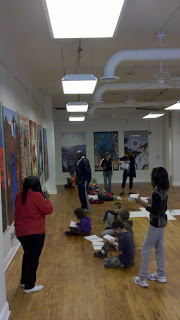We are gravely concerned that the response of the Obama administration and Congress to the Palestinian quest for statehood recognition at the United Nations will further fuel violent conflict in the Middle East. Rather than punish Palestinians for pursuing an international forum for addressing their right to self-determination, the United States should welcome this non-violent approach and use its diplomatic influence and resources to leverage the political opening toward securing a comprehensive and lasting resolution to the Israeli-Palestinian conflict.
The Obama administration’s plan to veto Palestine’s anticipated U.N. membership application regrettably signals the continuation of U.S. policy that obstructs Palestinian self-determination and undermines prospects for Israeli-Palestinian peace. Many members of Congress are proposing the elimination of development and humanitarian assistance for Palestinians and the withholding of all funding to U.N. programs that recognize any upgrade to the status of the Palestinian mission. Threats to unjustly punish Palestinians and possibly even the entire U.N. system in response to decisions by U.N member states on Palestine will only undermine security for Israelis and Palestinians and amplify the voices of extremists on all sides of the conflict.
Palestinians’ Turn to the U.N. Reflects Failure of U.S.-led Negotiations
As a matter of international law and practice, the Palestinians, like any other aspiring peoples seeking statehood recognition, have the right to present their case to the international community. The legitimacy of this effort was referenced a year ago by President Obama himself when he stated forthrightly before the U.N. General Assembly the goal of securing “an agreement that can lead to a new member of the United Nations, an independent, sovereign state of Palestine living in peace with Israel”.
Unfortunately, the U.S.-brokered process for resolving the conflict has failed to reach this goal, and in fact, led to further deterioration of the conflict over the past year. Negotiations collapsed only a month after President Obama’s speech at the U.N., and Israeli settlement expansion has continued at an alarming rate, claiming de facto territory that under international law and longstanding U.S. policy should belong to a future Palestinian state. With negotiations stalled and settlements expanding, the Palestinian leadership has chosen to take its case for statehood to
the United Nations.
Nonviolence Should Be Welcomed, Not Punished
Millions of peoples across the Middle East and North Africa are employing nonviolent means to bring about widespread, far-reaching reforms in support of more transparent, democratic selfgovernance. Nonviolent approaches to Palestinian self-determination at the U.N. and in both the
Palestinian territories and Israel should similarly be encouraged.
In this context, we urge the U.S. to use its voice and vote at the U.N. to welcome the Palestinian initiative for its nonviolent approach to self-determination and conflict resolution.
While Palestinian civil society leaders and the Palestinian Authority have committed to a path of nonviolence in September, the specter of violence in the aftermath of decisions at the U.N. looms large. We are opposed to the use of violence by all parties, and are deeply troubled by reports that the Israeli military has permitted the use of violence to confront unarmed, Palestinian demonstrators at protests expected to coincide with U.N. deliberations on Palestine.
Next Steps for the U.S.: Seize Opportunity to Take Bold Steps for Peace
The Obama administration and Congress should craft any U.S. policy response in ways which uphold the U.S. commitments to international law, self-determination, and the continued search for justice and security for both Israelis and Palestinians.
Recommendations for the Obama administration:
- Use U.S. voice and vote at the U.N. to welcome the use of nonviolent approaches rooted in international law to resolve conflict. A lone U.S. veto in the Security Council would be a sharp rebuke to Palestinian nonviolence and would undermine the rising forces of democracy and nonviolence throughout the Middle East.
- Call on all parties to exercise maximum restraint in the aftermath of the deliberations at the U.N. on Palestine.
- Invest in high-level diplomatic energy to press for comprehensive negotiations in good faith between Israel and a unified Palestinian government, encouraging rather than impeding Palestinian reconciliation efforts.
Recommendations for Congress:
- Reject H.R. 2829, The United Nations Transparency, Accountability, and Reform Act of 2011 introduced by Representative Ros-Lehtinen, which unjustly punishes not only Palestinians, but the entire U.N. system and all those around the world who benefit from its life-saving programs.
- Reject cuts to U.S. development and humanitarian aid for Palestinians, which would only increase the potential for further violence in the region.
Toward a Just and Lasting Peace
We urge the Obama administration and Congress to avoid retaliatory measures against the Palestinians that would increase political despondency at this critical juncture, and instead demonstrate U.S. leadership to press for a comprehensive negotiated settlement that offers a path toward lasting peace and security for all.
The Religious Society of Friends (Quakers) has worked for more than a century to promote a just and lasting peace in the Middle East. FCNL and AFSC are national Quaker organizations that are committed to pressing the United States to play a more constructive role in resolving the Israeli-Palestinian conflict. QUNO represents the global community of Quakers at the United Nations in New York. Our work is rooted in historic Quaker testimonies on peace and equality and longstanding Quaker witness in the region.








